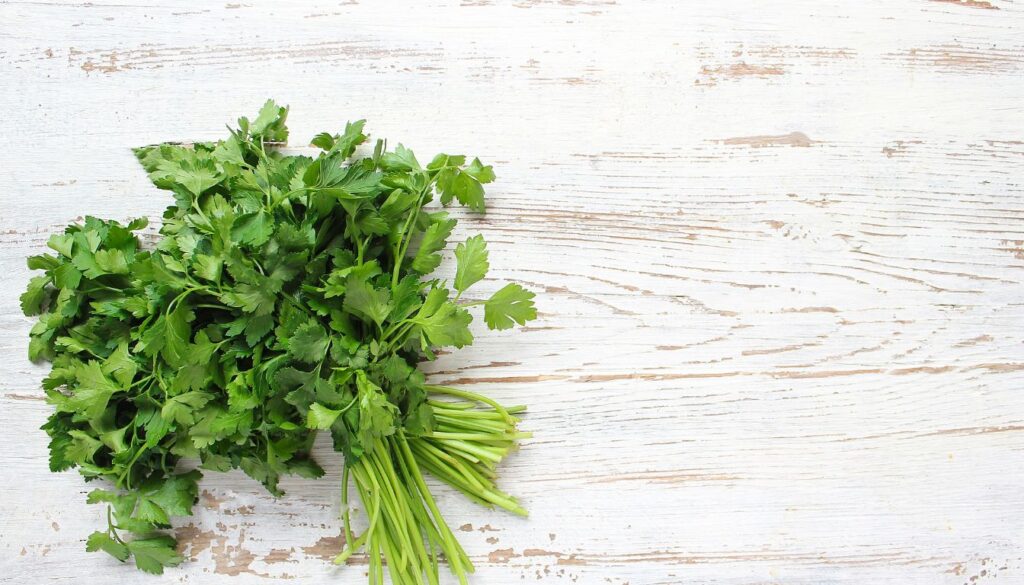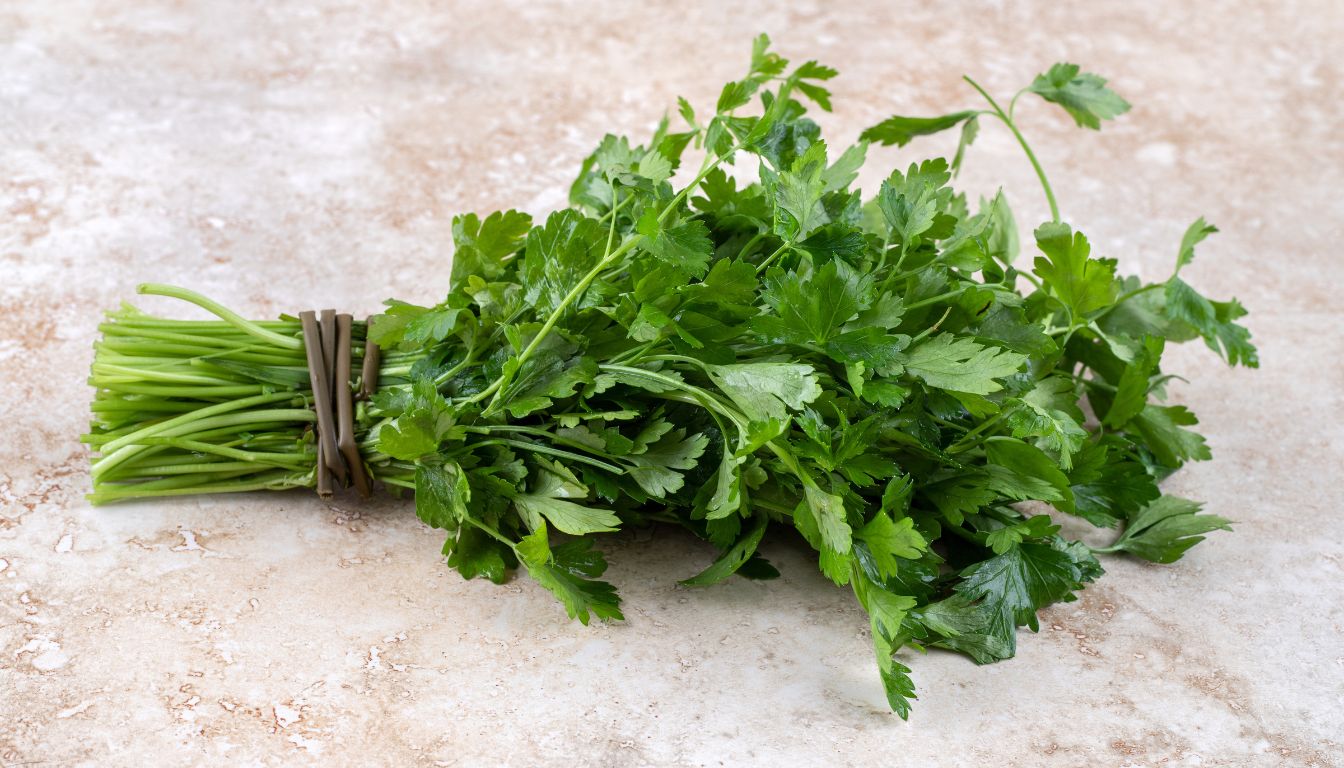Herbs bring a range of flavors that enhance the depth and complexity of dishes. Some are sweet, others savory, and some bitter. But have you ever encountered an herb that tastes like soap? If so, you’re not alone. Cilantro, a widely used herb in various cuisines, is famous for its divisive flavor. While some adore it, others find it repulsive. What herb tastes like soap? For those who dislike cilantro, its taste is often described as soapy or reminiscent of detergent.
But why does cilantro taste like soap to some people? The answer lies in genetics. According to a study published in Flavour, a specific gene called OR6A2 is responsible for the soapy taste that some people experience when eating cilantro. This gene affects how people perceive certain chemicals, such as aldehydes, found in cilantro and soap. Those who have a variation of this gene are more likely to find cilantro’s taste unpleasant and soapy.
Despite its polarizing taste, cilantro remains a staple in many dishes, from salsa to curry. Whether you love it or hate it, understanding why cilantro tastes like soap can help you appreciate the complexity of flavors in the foods you eat.
Why Does Cilantro Taste Like Soap to Some People?
Cilantro is a popular herb used in many cuisines around the world. However, some people find cilantro revolting, including famous chefs like Julia Child and Ina Garten. For those cilantro haters for whom the plant tastes like soap, the issue is genetic.
Genetics – What Herb Tastes Like Soap?
According to Britannica, people who dislike cilantro because it tastes like soap have a genetic variation in a group of olfactory-receptor genes. These genes are responsible for our sense of smell and are located in a cluster called OR6A2. Some people have a version of this gene that makes them more sensitive to the aldehydes in cilantro, which can make it taste like soap.
Supertasters – What Herb Tastes Like Soap?
Another reason why some people dislike cilantro could be due to their status as a supertaster. According to EatingWell, about 25% of the population are thought to be supertasters. These individuals have a higher number of taste buds than average and are more sensitive to bitter flavors. Since cilantro has a slightly bitter taste, it can be overwhelming for supertasters, making it taste soapy or unpleasant.
The reason why cilantro tastes like soap to some people is due to genetic differences and the individual’s sense of taste. While some people may enjoy the taste of cilantro, others may find it revolting.
What Is Cilantro?
Description
Cilantro, also known as Chinese parsley, is a green leafy herb that belongs to the coriander plant. It is a popular herb used in many cuisines around the world, including Mexican, Indian, and Central American cuisine. Cilantro has a strong, pungent flavor and aroma that is often described as citrusy and reminiscent of parsley.
Common Uses – What Herb Tastes Like Soap?
Cilantro is a versatile herb that can be used in a variety of dishes. It is commonly used as a garnish for soups, salsas, and sauces. It can also add flavor to rice dishes, curries, chutneys, and seafood dishes. In Mexican cuisine, cilantro is often used in combination with onions and tomatoes to make pico de gallo, a popular salsa.
In addition to its culinary uses, cilantro is also used for its medicinal properties. It is believed to have anti-inflammatory and antibacterial properties and may be helpful in treating digestive issues.
Overall, cilantro is a flavorful and versatile herb that is used in many different cuisines around the world. Its unique flavor and aroma make it a popular choice for adding depth and complexity to a variety of dishes.
Can You Change Your Perception of Cilantro?
If you’re one of the many people who can’t stand the taste of cilantro, you might be wondering if there’s any way to change your perception of this polarizing herb. While some people love the fresh, citrusy flavor of cilantro, others describe it as tasting like soap or even crushed bugs. So, is there anything you can do to learn to love cilantro? Let’s explore some possibilities.
Genetic Testing
First, it’s worth noting that some people’s aversion to cilantro might be due to genetics. According to a study by the University of Toronto, some people have a genetic variation that makes them more likely to perceive the aldehydes in cilantro as soapy or unpleasant. If you’re curious about whether you have this genetic variation, you can get a DNA test to find out.
Exposure Therapy – What Herb Tastes Like Soap?
For those who simply dislike cilantro but don’t have a genetic aversion, exposure therapy might be an option. Just as with other foods or flavors, repeated exposure to cilantro can help your brain learn to associate it with positive experiences rather than negative ones. This means that even if you initially find cilantro unpleasant, you might be able to learn to appreciate its flavor over time.
Cooking Techniques – What Herb Tastes Like Soap?
Finally, it’s worth noting that the way you prepare cilantro can have a big impact on its flavor. For example, some people find that cooking cilantro helps to mellow out its flavor and make it less overwhelming. Others prefer to use cilantro as a garnish rather than a main ingredient, as this can help to add a pop of fresh flavor without overwhelming the dish.
Overall, while there’s no surefire way to change your perception of cilantro, there are some strategies you can try if you’re interested in learning to appreciate this polarizing herb. Whether you opt for genetic testing, exposure therapy, or simply experiment with different cooking techniques, there’s no harm in giving cilantro another chance. Who knows—you might just end up loving it after all!
Before You Go – What Herb Tastes Like Soap?

The herb that tastes like soap is cilantro. Cilantro has a unique flavor that some individuals describe as tasting like soap. This unique taste perception is attributed to the presence of aldehyde chemicals in cilantro leaves, similar to those used in soap making.
The perception of cilantro’s taste varies among individuals and is influenced by genetic factors. Some people are genetically predisposed to perceive cilantro as soapy, while others find it to be a pleasant and refreshing herb.
Cilantro is commonly used in cooking, particularly in Mexican, Indian, and Thai cuisine. It adds a distinct flavor and aroma to dishes, and it is often used as a garnish. However, if you are one of the individuals who perceive cilantro as soapy, you may want to avoid dishes that contain this herb or substitute it with other herbs that have a similar flavor profile.
In summary, the herb that tastes like soap is cilantro, and this unique taste perception is influenced by genetic factors. Cilantro is a popular herb used in various cuisines, but if you are one of the individuals who find it soapy, you may want to avoid dishes that contain cilantro or substitute it with other herbs.
What Herb Tastes Like Soap
Hello, herb enthusiasts! Today, we’re diving into a flavor mystery: the herb that tastes like soap. It’s like a taste test, but with a twist!
Now, how does this topic and theherbprof.com connect? Well, let me tell you. The website is a gold mine of information about herbs and their unique flavors. So, if you’re looking to solve the mystery of the soapy-tasting herb, theherbprof.com is your go-to place.
This blog post, on the other hand, serves as a launchpad to that wealth of information. Think of it as your friendly neighborhood guide, pointing you towards the right herbs and the right flavors. And the best part? It’s all about sharing knowledge and promoting a healthier lifestyle through herbs.
So, the next time you’re thinking about an herb that tastes like soap, remember this: Herbs are your friends. And theherbprof.com is the place to learn all about them.
References – What Herb Tastes Like Soap?
Little Herb Encyclopedia, by Jack Ritchason; N.D., Woodland Publishing Incorporated, 1995
The Ultimate Healing System, Course Manual, Copyright 1985, Don Lepore
Planetary Herbology, Michael Tierra, C.A., N.D., Lotus Press, 1988
Handbook of Medicinal Herbs, by James A. Duke, Pub. CRP Second Edition 2007
The Complete Medicinal Herbal, by Penelope Ody, Published by Dorling Kindersley
Check the Following Articles!
Herb Gardening For Beginners: Tricks for a Successful Start
Growing Basil Indoors During Winter: How To Do It!
What Does Cilantro Taste Like? A Clear Explanation
Frequently Asked Questions – What Herb Tastes Like Soap?
What genetic factors contribute to the perception of soapiness in certain herbs?
According to a study cited by Grunge, people who perceive a soapy taste in cilantro share a common smell-receptor gene cluster called OR6A2. This gene cluster picks up the scent of aldehyde chemicals, which are found in cilantro leaves and are also used during soapmaking. The OR6A2 gene may cause some people to taste soapiness in cilantro due to their sensitivity to these aldehyde chemicals.
How does the chemical composition of cilantro lead to a soapy taste for some people?
Cilantro contains aldehyde chemicals, which are the same chemicals used in soapmaking. People who perceive a soapy taste in cilantro may be more sensitive to these chemicals due to their genetic makeup. When these individuals consume cilantro, the aldehyde chemicals bind to receptors in their mouth and nose, creating a sensation that is interpreted as a soapy taste.
Are there any techniques to reduce the soapy flavor of cilantro in cooking?
According to Allrecipes, cooking cilantro can help reduce its soapy flavor. Heat can break down some of the aldehyde chemicals that cause the soapy taste. Additionally, pairing cilantro with other strong flavors, such as garlic or ginger, can help mask its soapy taste.
Can changes in taste perception after illness explain why some foods taste like soap?
It is possible that changes in taste perception after illness could contribute to the perception of a soapy taste in certain foods. For example, chemotherapy can alter taste perception, causing some foods to taste different or unpleasant. However, research suggests that genetic factors are the primary driver of the soapy taste perception in cilantro.
What percentage of the population reports a soapy taste when eating cilantro?
According to Today, approximately 4-14% of the population perceives a soapy taste when eating cilantro. This percentage varies depending on the study and the population being studied.
Aside from cilantro, are there other herbs or foods known for having a soapy flavor profile?
Dill and parsley are two other herbs that are sometimes described as having a soapy flavor profile. Like cilantro, these herbs contain aldehyde chemicals that can create a soapy taste for some individuals. However, not everyone perceives these herbs as soapy, and the percentage of the population that reports a soapy taste for dill or parsley is not well-established.
